Businesses and public bodies may need to provide neutral ‘third spaces’ for trans people following the Supreme Court’s ruling on the legal definition of a woman.
The UK’s Equality and Human Rights Commission (ECHR) has been overwhelmed with calls on the issue as organisations have been seeking clarity has on how on manage the implications of the judgment, The Times reports.
The Supreme Court‘s ruling that the definition of a woman in equality law is based on biological sex means trans women with a gender recognition certificate (GRC) can be excluded from single-sex spaces if ‘proportionate’.
EHRC chair Baroness Kishwer Falkner yesterday claimed trans women will now be barred from female bathrooms and sport, while lawyers have suggested they could be asked to use disabled bathrooms at work.
She added that there is no law against providing a third space such as unisex toilets and suggested trans rights organisations ‘should be using their powers of advocacy to ask for those third spaces’.
While the implications of the judgment are still being worked out, some trans people are certain it will make their lives much more dangerous and invite greater ridicule from anti-trans campaigners.
Former boxing promoter Kellie Maloney believes the decision will ’embolden anti-trans people’ and make trans people feel ‘less safe’.
‘I’m not someone who has ever felt worried as Kellie but I will certainly be more careful when I’m back in England,’ she told The Mirror.
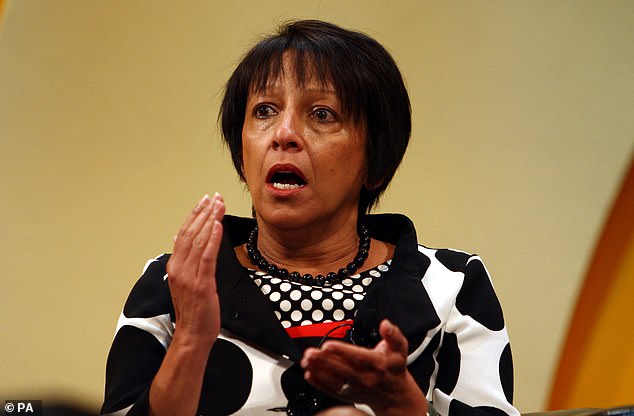
The UK’s Equality and Human Rights Commission (ECHR) has been overwhelmed with calls on manage the implications of the Supreme Court’s ruling on the legal definition of a woman. Pictured: ECHR Chair Baroness Falkner
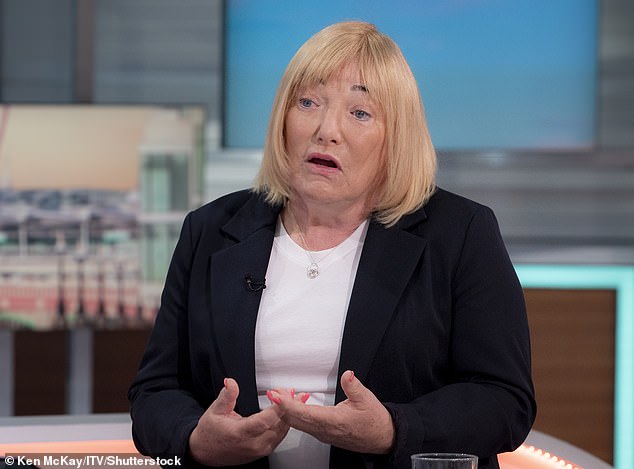
Former boxing promoter Kellie Maloney (pictured) believes the decision will ’embolden anti-trans people’ and make trans people feel ‘less safe’
Speaking from her second home in Portugal, Kellie said the ruling ‘has put a lot of fear in a lot of people’ and was made by ‘old farts with no grip on reality’.
The former boxing promoter, who completed transitioning almost 11 years ago, warned it could have grave consequences for the UK’s transgender community.
‘If I ever commit a crime I’d end up in a male prison now, it seems. How on earth would that be safe for me? I would get beaten and raped,’ she told The Mirror.
Kellie admitted that attaining a Gender Recognition Certificate was far too easy and claimed the trans community ‘has become too big too quickly’.
GRCs were introduced in the 2004 Gender Recognition Act and they allow transgender people to have their affirmed gender legally recognised.
But the Supreme Court ruled that trans women with a GRC can now be excluded from single-sex spaces if ‘proportionate’.
Speaking after the decision Baroness Falkner said: ‘Today the Supreme Court ruled that a gender recognition certificate does not change a person’s legal sex for the purposes of the Equality Act.
‘We are pleased that this judgment addresses several of the difficulties we highlighted in our submission to the Court, including the challenges faced by those seeking to maintain single-sex spaces, and the rights of same-sex attracted persons to form associations.’

Kellie Maloney on Celebrity Big Brother in 2014
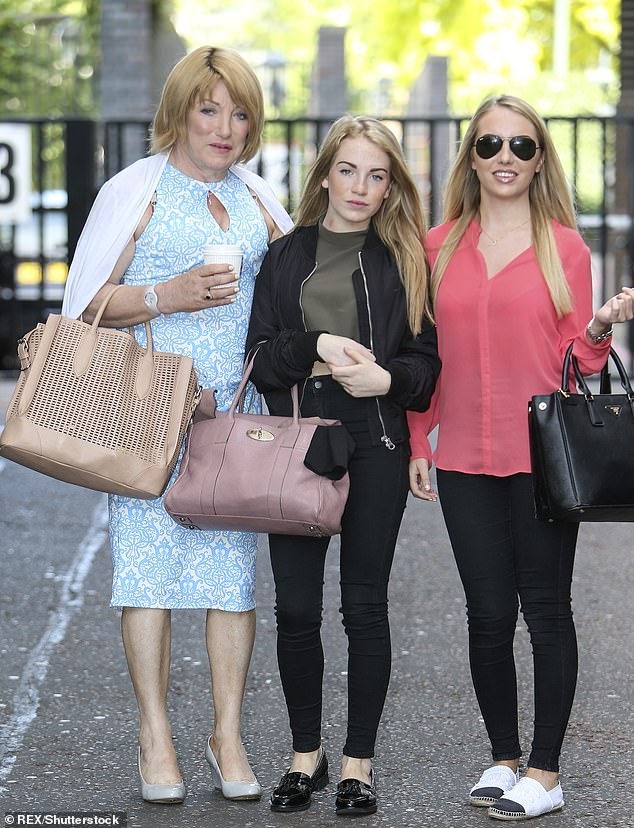
Kellie is pictured with her younger daughters Libby and Sophie in June 2015
The ECHR is expecting to lay an updated statutory code of practice before Parliament by the summer, and has said it is working ‘at pace to incorporate the implications of this judgment’ into the code for public bodies setting out their duties under the Equality Act.
Baroness Falkner said the commission evaluates when the law is not followed by organisations and can speak to those bodies, or ‘use enforcement, compliance tools or whatever, we will be continuing to do that’.
Regarding single-sex hospital wards, she said the NHS will ‘have to change’ their 2019 policy, which says that trans people ‘should be accommodated according to their presentation’.
While the implications of the judgment are still being worked out, a string of organisations came forward to reveal changes to their policies.
This includes the British Transport Police (BTP), which said it had adopted a new ‘interim position’ which will see trans people held in custody searched by an officer in line with their birth sex.
Businesses will likely have to review and change policies, including on toilets, in light of the Supreme Court ruling, according to lawyer Peter Byrne, head of employment law at Slater and Gordon.
He said: ‘Lots of businesses are going to have to redraft policies around same-sex toilets.’
He said that while previously an employee might have been asked which toilet they felt comfortable using, ‘that option is probably going to disappear’.
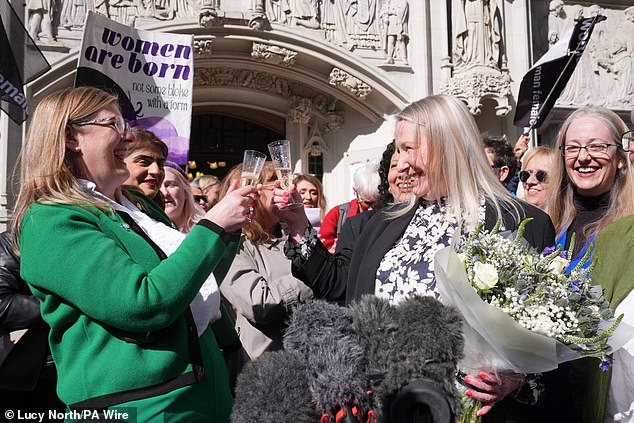
The judgment was celebrated by women’s rights groups who opened a bottle of champagne. Pictured: Susan Smith (centre left), Marion Calder (centre right) and Helen Joyce (right)
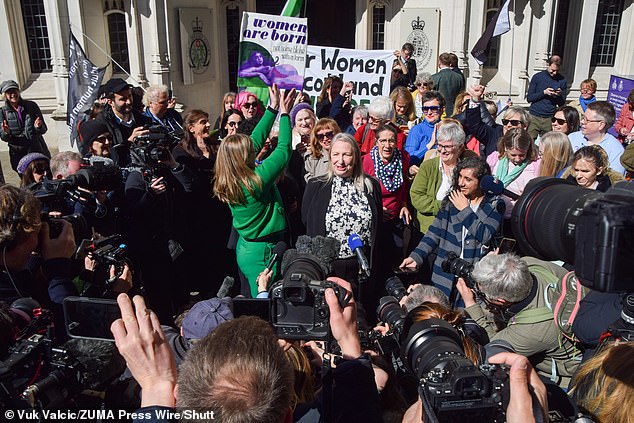
Campaigners celebrate Wednesday’s judgment outside the Supreme Court
‘My personal view is, in reality you’re going to end up asking them to use disabled toilets,’ he added.
Emma Bartlett, partner and diversity, equality and inclusion lead at law firm CM Murray, said trans employees could potentially end up having to use toilets on different floors at work.
She said: ‘I think the main issue for an employee who’s a trans person, if they are required to use a unisex toilet, rather than being able to use the toilet of the gender that they identify with, is that the unisex toilet might not be on the same floor that they work on, or there may not be a unisex toilet.
‘And so they may have to use the disabled toilet, and the disabled toilet might be in a different building, or might be five floors away.
‘And so their ability to just be efficient during their working day could be lost, and they will say that their dignity is impacted by that. And that’s going to be difficult.’
She said this issue could potentially ‘trigger some satellite litigation’ in the form of tribunals, but that the next question to be answered will be who they are compared with, to determine if there has been discrimination.
She added: ‘Is their comparator a man or a woman, or is their comparator, if they are identifying as a trans woman, a trans man?
‘Because the trans man is going to be treated exactly the same way as a trans woman, in which case, the claim doesn’t get off the ground. And so the first question is, well, who’s the right comparator?’
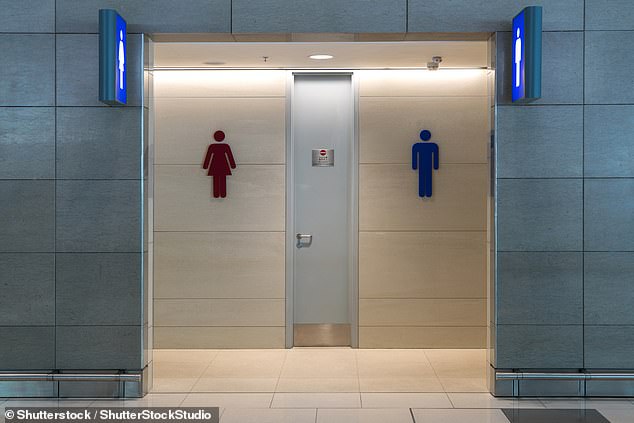
The judgement could have far-reaching implications on how sex-based rights apply, including how women-only spaces are allowed to operate
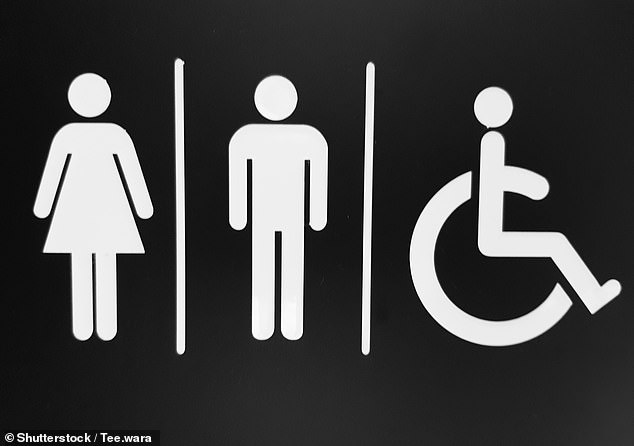
Lawyers predict trans women could be asked to use disabled toilets at work
More generally, Mr Byrne said his advice to his commercial clients will be ‘tread carefully’.
‘Every single business will have its own policy in place, you need to look at each individual policy and where that needs to be changed,’ he added.
He said businesses will need to look at their policies ‘very quickly’.
Spencer West employment law partner Jonathan Mansfield said a neutral third space ‘is the answer’ but a challenge for businesses may be the layout of a building or the cost.







